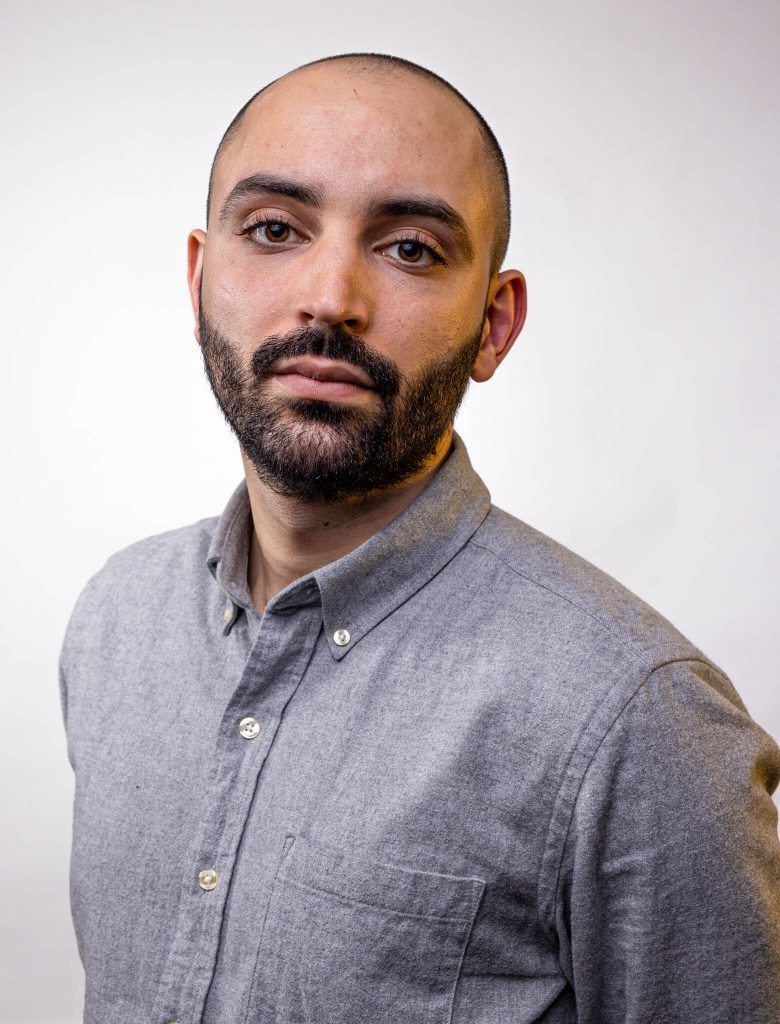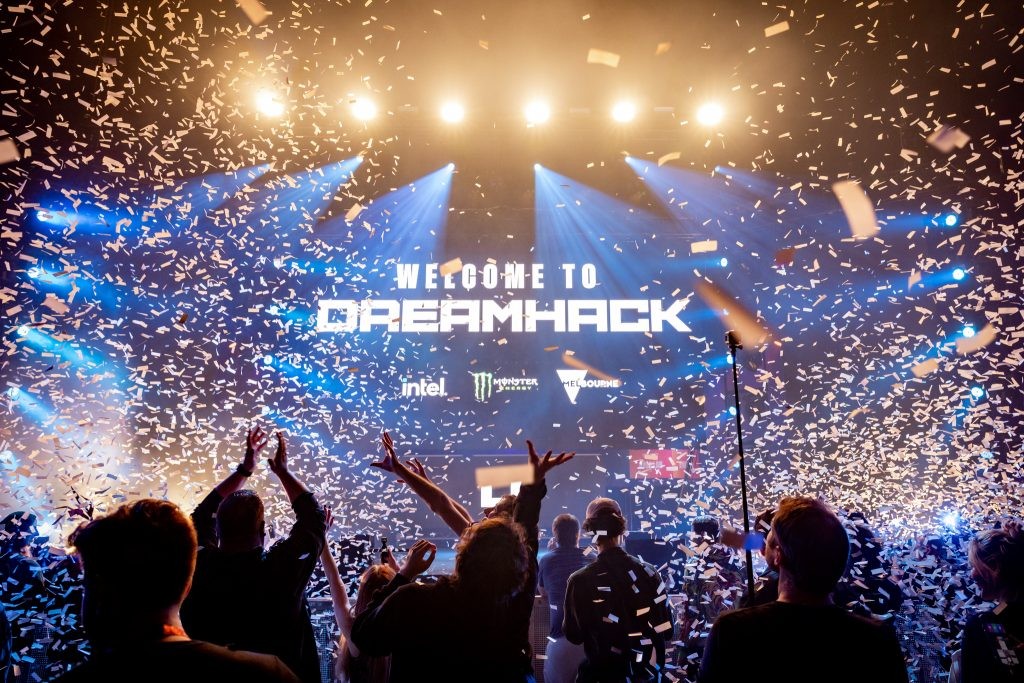Shahin Zarrabi is the Vice President of Strategy & Growth at the ESL FACEIT Group – responsible for numerous different things, including the reason we’re here, DreamHack’s eSports & gaming festivals. We were lucky enough to talk to him regarding the multi-city festival, what it means for the gaming landscape as a whole, and how we need to keep gaming festivals & conventions alive more now than ever.
DreamHack Festival is Only Getting Bigger
FW: For those who may not be aware, could you tell us not only what DreamHack is, but also how it started?
DreamHack has been described in many different ways since its inception in 1994. Back then, it was a “demo party” where video game programmers brought their computers, got together, and showed their skills. With the rise of gaming, the events grew and people started coming to play with and against each other. In the mid-00s, the growth of esports meant we started hosting major tournaments with millions in prize pools.
Today, streaming and content creation have become primary elements of our experiences, with the biggest and the best coming to do crazy stuff (like locking themselves into a box for 48 hours streaming) and meet their community. The growth of DreamHack has attracted more and more game publishers, developers, and brands to activate in our expos around the world. At the end of the day, Dreamhack is a festival for everything and anything gaming. The beautiful part is that we simply follow where the community takes us, and try to create a platform for the community to thrive.
FW: With recent world events pushing us into seclusion and being forced to close ourselves off for our safety, real-world events are more important than ever. How has the epidemic affected your approach to the events, and what has changed from an experience point of view, during said event?
It’s pretty clear that while the pandemic affected the world’s behaviors, especially in our approach to offices and remote work, it also showed that people will always seek connection in real life. Gaming has always been a social activity, but with the advent of the internet, we’ve gone from arcade halls and home split-screen experiences to mostly socializing through the screen.
Don’t get me wrong, I believe online gaming is a great societal force, and had an important purpose during the pandemic, but at the end of the day, people want to see each other. See that they’re part of something bigger. Laugh and get excited. Create memories for life. And that can only be done in real life. Post-pandemic, we’ve focused a lot more on why people come, and not just what content we bring, and it’s clear that regardless of what you can watch or play at a DreamHack, the primary experience we need to offer is a place where you can create those memories.
FW: There are gamers out there who may not have had the opportunity to go to an in-person event, even more so with the last few years’ events. How do you appeal to those who haven’t been to one, and how do you persuade them it can’t just be experienced via a stream?
Some people don’t like live events, and that’s totally fine. The gaming culture offers so much for everyone, and we’d never try to force our experiences onto the community. For those that have the slightest interest though, I’d compare it with any other live event like in sports and music. You can watch it on TV or you can listen to your favorite band on Spotify, but there’s simply another feeling of excitement and joy when you’re there together with thousands of other people, watching or listening live. A connection that you can’t really recreate in front of a screen. Meet with your favorite YouTuber or Twitch streamer, get your hands on new games, or feel the roar of the crowd as esports teams battle it out.
FW: What’s YOUR favorite memory of DreamHack?
There are so many to choose from, but I love our big dumb fun moments where we connect big creators with their fans. Like when we put Sodapoppin play dodgeball with his community on a field outside of DreamHack Summer 2018, or Tyler1 competed on top of our 1v1 pyramid at DreamHack Dallas earlier this year. Those memories make me feel like we’ve created the rockstar moments for gaming but in our own way.
FW: With the variety that the convention offers, year in, and year out, how do you continue to be fresh and stand out from the other conventions, without growing stale and boring to the fans?
For us, it’s important to find a source of inspiration and stay focused and open to how trends develop in gaming and internet culture. Many events start out with a niche and grow to try to be a bit of everything to everyone. Even DreamHack has fallen into that trap at times. We’d never want to exclude anyone from coming to DreamHack, but recently, we’ve also had to remind ourselves that we need to experiment with and focus on the trends that the community follows right now so that we stay true to our vision of bringing the gaming community to life, rather than just a community to life.
FW: There are not many gaming conventions that move as DreamHack does. Do you think this helps or hinders the event, and in what ways?
DreamHack has been “on tour” worldwide since the early 10s when it first expanded from Sweden into Spain. Ever since, the locations we’ve been to have always helped to improve the next festival we do. It’s simply really, it allows us to learn faster, learn more, and experiment with more iterations so that we can stay on top of trends and new developments in the community.
Gaming and esports are our glue, and becoming mainstream means we have more opportunities to grow. More people will come to DreamHack for the first time for a very specific feature: an esports competition, a content creator meet & greet, and winning the cosplay contest.
There have been times when we’ve overextended ourselves, but post-pandemic I think we’ve really landed in a cadence that makes sense and is beneficial to both us and the visitors, especially in trying to be more consistent and build a long-term presence in the locations we’re in.
FW: And with that in mind, it would be argued that organizing just one of these festivals a year would be hard work, let alone ten! How do you do it?!
Teamwork & great people. There’s no other answer. In each country, we try to find the best people who understand what we want to do, and we let them do it. Few constraints and a lot of trust.
FW: And how would you like to see it evolve in the coming years?
I think there’s a danger in looking at other conventions, and even other festivals outside of gaming, and trying to emulate them. Instead, I want to see DreamHack keep developing its own identity. Not a convention to maximize floor space sales, not a flea market, not an event where you spend money for a ticket only to spend more money to unlock parts of the event. Simply a platform where we invite the coolest and craziest in the community, with a bit of curation and facilitation, to do their thing.
FW: Gaming is becoming more mainstream as eSports and content creation continue to explode in popularity. How do you use that to DreamHack’s advantage and persuade fans that yours is the festival that will offer the most?
Honestly, it’s not about offering the most. It’s not even about gaming. Take Coachella, Glastonbury, or Rock in Rio. Sure, you can argue they have “the most”. But people would buy tickets to those festivals before even seeing the headliners. These experiences are not just about offering the most, it’s about offering a place where you come back from and have memories that you’ll talk about for years to come. They do that by creating a culture, a vibe, that makes people feel they’re part of something bigger and facilitates an experience where there’s a sense that anything can and will happen.
Gaming and esports are our glue, and becoming mainstream means we have more opportunities to grow. More people will come to DreamHack for the first time for a very specific feature: an esports competition, a content creator meet & greet, and winning the cosplay contest. But it’s up to us to create an experience that makes them want to return next time even if that specific feature isn’t happening that year. That’s our mission. That’s what we think about every day.
Follow us for more entertainment coverage on Facebook, Twitter, Instagram, and YouTube.



